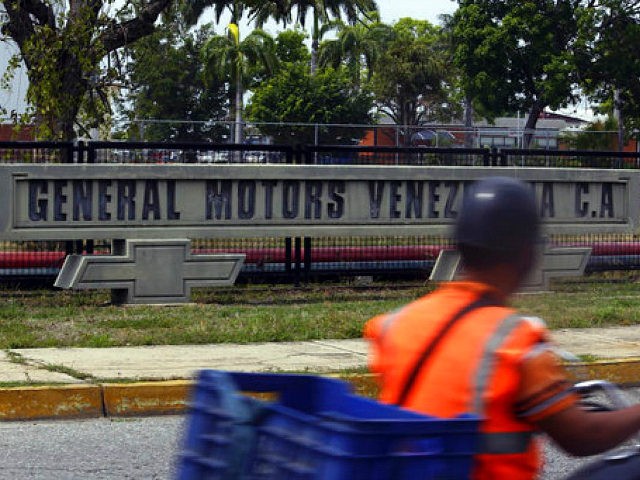The business world awoke to a headline shocking to American audiences but quite routine for those following the past two decades of socialist rule in Venezuela: the government of dictator Nicolás Maduro had seized GM’s remaining plant in the country.
The officials at General Motors issued an outraged statement vowing to “vigorously take all legal actions, within and outside of Venezuela, to defend its rights” and claimed they would no longer do business in the South American country. The government of Venezuela has not issued any public comment, likely viewing the seizure as unremarkable among the thousands made since late tyrant Hugo Chávez took over the country 17 years ago.
While the seizure is no surprise, GM’s continued presence in Venezuela is. The corporation had announced in 2015 that, following a wave of American company exists after Chávez’s death in 2013, it would “likely” cease all production in the country by July of that year.
“Absent an ability to obtain U.S. dollars in the near term, which we believe is unlikely, current vehicle production will likely cease in July,” a 2015 GM quarterly financial filing read, though the notice added, “production continues in Venezuela and no decision has been made to cease operations. We continue to work with the Venezuelan government to seek solutions to convert currency.”
Having never fulfilled that possibility, GM now learns what companies like Coca-Cola and Bacardi learned in the aftermath of the Cuban revolution and what newcomers to the Cuban business climate like Airbnb and Carnival are likely to learn in the near future: in a socialist/communist environment, corporations never really own their property.
Due to Venezuela’s precipitous economic decline, GM may be the last of the great American conglomerates to suffer legal theft of their property by the Maduro regime. Its persistent presence there is a testament to the history of Venezuela, once Latin America’s wealthiest nation (after its predecessor in that accolade, Cuba, collapsed under communist rule). GM has operated in Venezuela for nearly 70 years, employing 2,700 people there and operating 79 dealerships.
“Yesterday, GMV’s (General Motors Venezolana) plant was unexpectedly taken by the public authorities, preventing normal operations. In addition, other assets of the company, such as vehicles, have been illegally taken from its facilities,” GM said in a statement. GM made a promise to “take all legal actions” to receive payment for its facility.
If history is any indication, GM should not bank on getting the value of its assets back. The Cuban government, which has treated Venezuela as its socialist colony for nearly two decades, guzzling its free oil and promoting its interests from within Caracas, similarly expropriated an estimated $6 billion in American assets following the 1959 revolution.
Companies like Coca-Cola, Exxon, and Hilton had all their assets on the island stolen. To this day, the U.S. Foreign Claims Settlement Commission lists nearly 6,000 official claims against Cuba. Bacardi’s legal battle with the government for its Havana Club trademark remains in court today.
Not only have those corporations failed to get the value of their assets back through legal means, newer corporations continue to do business with Cuba, and opportunistic politicians like Texas Governor Greg Abbott continue to promote doing so. Both established corporations like Carnival Cruises and start-ups like Airbnb have seen investment in Cuba as worth the risk, despite the historical context.
In Venezuela, however, American companies wiser than GM long ago learned their lesson. Verizon, AES Corp., CMS Energy, Conoco Phillips, and ExxonMobil all left the country in 2007 after Chávez launched a wave of expropriations/lootings of private corporations. Those corporations left before Chávez expropriated the Bank of Venezuela, a subsidiary of Santander Bank, and before he completed the looting of nearly 1,200 corporations by 2013, the year of his death.
A second wave of exits from the Venezuelan economy by American corporations occurred in the aftermath of Chávez’s death, as his successor Nicolás Maduro’s policies further sank the economy. After inflation hit Clorox, Colgate, Coca-Cola, Ford, Procter & Gamble, and DirectTV, among others, in 2014, Clorox excited, promoting Vice President Jorge Arreaza to call the corporation “evil.”
Maduro seized all Clorox assets without reimbursing the corporation following their exit.

COMMENTS
Please let us know if you're having issues with commenting.